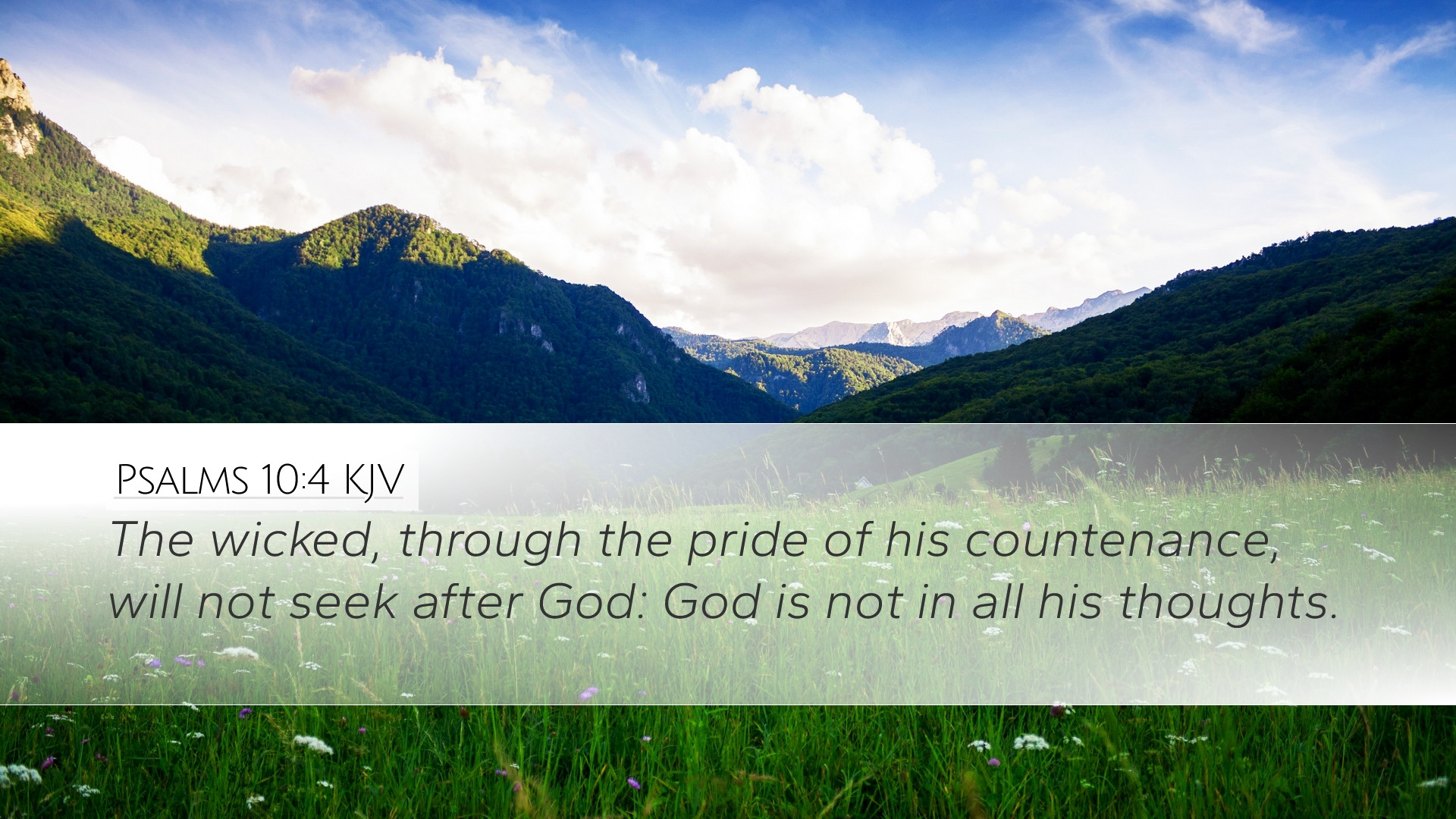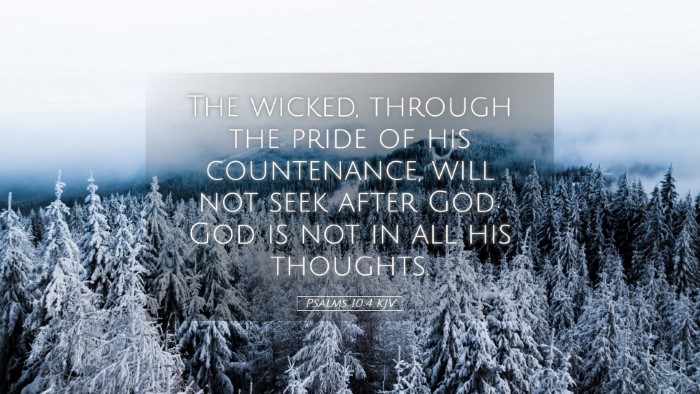Commentary on Psalms 10:4
Psalms 10:4 states: "The wicked, through the pride of his countenance, will not seek after God: God is not in all his thoughts." This verse succinctly captures the essence of the wicked man's mentality, revealing profound insights into the nature of sin and the consequences of a heart turned away from God.
Contextual Analysis
Psalm 10 is a lamentation, a cry for justice in light of the triumph of the wicked. The psalmist grapples with the seeming prosperity of the ungodly while the righteous suffer. In verse 4, the focus is directed at the internal disposition of the wicked, particularly his pride, which is presented as the root cause of his godlessness.
Matthew Henry emphasizes that the proud heart of the wicked blinds him to the reality of God’s presence and authority. The wicked man is characterized not merely by his actions but by the disposition of his heart. His pride leads him to believe that he is self-sufficient, thus rendering the pursuit of God unnecessary.
The Nature of Wickedness
Albert Barnes expands on the meaning of the term "wicked." He indicates that wickedness is often rooted in ignorance and arrogance. The pride of the countenance signifies an outward manifestation of inward arrogance and a deliberate disregard for God. This pride leads to a delusion of self-reliance, where the wicked affirm, whether consciously or unconsciously, “I do not need God.”
-
Pride: It is the source of the wicked's refusal to seek after God, described as a condition where self-exaltation suppresses the acknowledgment of divine authority.
-
Ignorance: The wicked man's thoughts are devoid of God; his life is constructed without recourse to divine wisdom or guidance.
Theological Implications
Adam Clarke underscores the theological ramifications of the wicked man's separation from God. The essence of sin is displayed in a life that does not engage with God in thought or practice. The phrase "God is not in all his thoughts" indicates a complete absence of divine influence on the wicked's life, which Clarke suggests is indicative of a heart that is estranged from God and right living.
The implications for the ecclesiastical community are significant. Pastors and theologians must recognize the dangers of pride that could insidiously invade their ministries. They should teach that true knowledge of God fosters humility and acknowledgment of one’s dependence on divine grace, contrasting starkly with the independence that pride fosters.
Practical Applications
This verse calls for self-examination and acknowledgment of one’s need for God. The wicked’s dismissal of God's thoughts serves as a warning to all believers. In practice, we must assess how our own thoughts align with God’s Word, ensuring that our lives are testimonies to His grace rather than reflections of our pride.
-
Engagement with Scripture: An active engagement with the Bible can provide correction where pride has taken root in our lives.
-
Prayer and Supplication: Regularly asking God for humility and discernment is essential in combatting the natural inclination toward self-sufficiency.
-
Community Fellowship: Surrounding oneself with humble believers can provide accountability and encouragement in the pursuit of a God-centered life.
Conclusion
In conclusion, Psalms 10:4 serves not only as a diagnosis of wickedness but also as a clarion call for believers to cultivate a mindset and heart posture fixed on God. The abandonment of pride in favor of humility is not merely a personal journey but a communal responsibility within the body of Christ. As students of the Word, scholars, and theologians, let us be diligent in addressing the areas of pride in our lives that hinder our relationship with God, ensuring that He is ever present in our thoughts and actions, reflecting a life transformed by His grace.


